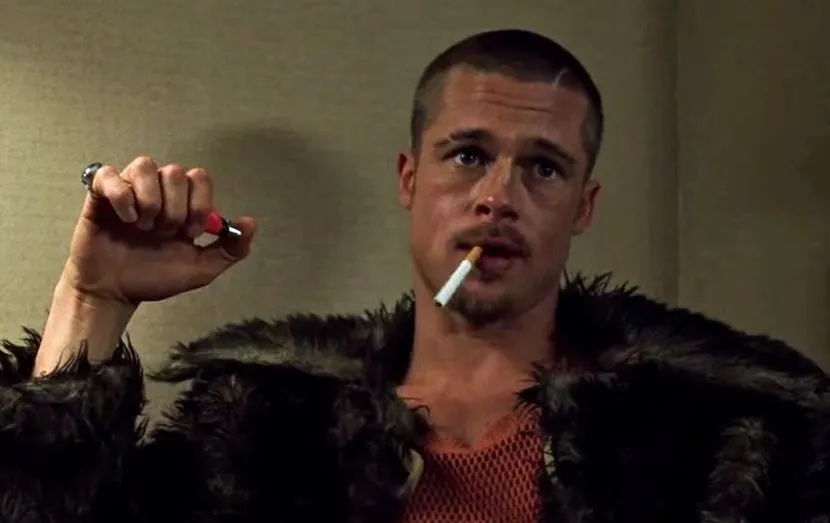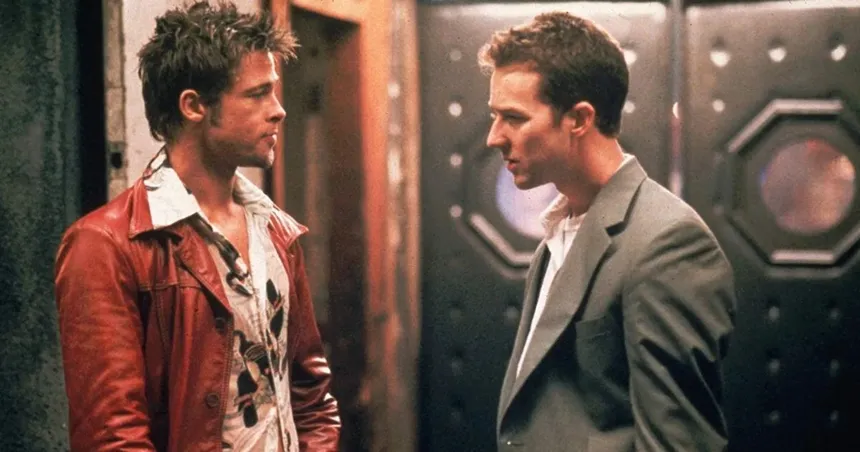David Fincher’s Fight Club, released in 1999, has become a cult classic, sparking intense debate and discussion about its themes of violence, toxic masculinity, and consumerism. The film, based on Chuck Palahniuk’s novel, explores the life of an unnamed narrator, played by Edward Norton, who becomes increasingly disillusioned with modern society’s materialism. Through his relationship with the charismatic and unpredictable Tyler Durden, played by Brad Pitt, the narrator becomes embroiled in a group of like-minded men who concoct a violent uprising, known as Project Mayhem.
The film’s shocking twist, in which the narrator discovers he has a split personality and that Tyler is an alternate identity, has been the subject of much interpretation. Some critics have misinterpreted the film as celebrating toxic behavior, claiming it encourages destructive and violent tendencies. This criticism has been vehemently denied by Fincher, who has stated that the film is intended to be a satire, ridiculing the very behaviors it depicts.

A Still From David Fincher’s Fight Club (Photo: Fight Club)
In China, the government’s strict content regulations led to significant changes to the film. The original ending, which featured a depiction of explosive destruction, was replaced with a title card implying that Project Mayhem was foiled by Tyler’s cooperation with the police. This new ending was met with widespread outcry, and the original cut was eventually restored on the Chinese streaming site Tencent Video.
The censorship of Fight Club is not surprising, given China’s strict control over content and its aversion to anything perceived as anti-establishment. The changes to the film’s ending serve as a prime example of government interference in artistic expression. Furthermore, the film’s edit for sexual content and violence raises questions about the extent to which artistic freedom is preserved in the face of moral and ideological expectations.
Despite the controversy surrounding its ending, Fight Club remains a powerful exploration of the human experience. The film’s exploration of toxic masculinity, consumerism, and rebellion raises important questions about the state of modern society, encouraging a critical examination of the world around us.
























